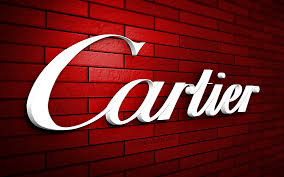
The owner of Cartier jewellery, Richemont, has issued a warning to consumers about the impact of economic concerns and geopolitical tensions on their purchasing. The company's shares fell 6% after it reported first-half profits that fell short of expectations.
The Swiss business, which also owns a number of upscale Swiss watch brands, including Vacheron Constantin and IWC, is the most recent luxury expert to announce a slowdown in recent months as the post-pandemic frenzy wanes.
Last month, rival French company LVMH revealed a downturn in the demand for luxury products in Europe and the US, where growing costs have forced consumers—particularly younger ones—to reduce their spending.
Richemont announced on Friday that it would be joining the "moderation club," as described by Bernstein analyst Luca Solca. The company reported continuous increase in currency sales, which would slow to 5% from July to September.
Sales between April and June had grown by 19%.
The chairman of Richemont, Johann Rupert, stated that while the full impact of higher interest rates was still to be seen, geopolitical uncertainties, inflation, and slower economic development were all lowering sentiment.
"It's no surprise to us that the market will slow down and across all asset classes, because that's the purpose," Rupert told reporters, referring to higher interest rates.
A housing crisis and record youth unemployment have dampened sentiment in China, and the post-COVID feel-good factor had also faded.
"They're not going out to bust their credit cards," Rupert said referring to Chinese customers, who make up 30% of Richemont's sales. "There is a bit of caution on their side."
Nevertheless, according to Rupert, Richemont had enough cash on hand to keep funding its marketing, boutiques, and merchandise. This allowed the company to weather the downturn.
"I'm very positive about the medium term outlook. I've been involved with Cartier since 1976, trust me, I've seen a bunch of ups and downs and ups and downs," he said.
"So, I'm not concerned about the next three to five years. Certainly, we will use the opportunity to gain market share because we're in a position to support ourselves."
Richemont's revenues increased by 6% to 10.22 billion euros ($10.9 billion) in the six months ending at the end of September, falling short of the 10.34 billion euros experts had predicted. The company's profit of 1.51 billion euros also fell short of the 2.17 billion euros predicted by analysts in a consensus that Zuercher Kantonalbank cited.
Analyst Jon Cox of Kepler Cheuvreux said that although the company's sales and profit fell short of expectations, it performed better than expected in the US and in jewellery sales, and that the outlook for a soft landing and prospects for revival in China were "remarkably decent."
(Source:www.usnews.com)
The Swiss business, which also owns a number of upscale Swiss watch brands, including Vacheron Constantin and IWC, is the most recent luxury expert to announce a slowdown in recent months as the post-pandemic frenzy wanes.
Last month, rival French company LVMH revealed a downturn in the demand for luxury products in Europe and the US, where growing costs have forced consumers—particularly younger ones—to reduce their spending.
Richemont announced on Friday that it would be joining the "moderation club," as described by Bernstein analyst Luca Solca. The company reported continuous increase in currency sales, which would slow to 5% from July to September.
Sales between April and June had grown by 19%.
The chairman of Richemont, Johann Rupert, stated that while the full impact of higher interest rates was still to be seen, geopolitical uncertainties, inflation, and slower economic development were all lowering sentiment.
"It's no surprise to us that the market will slow down and across all asset classes, because that's the purpose," Rupert told reporters, referring to higher interest rates.
A housing crisis and record youth unemployment have dampened sentiment in China, and the post-COVID feel-good factor had also faded.
"They're not going out to bust their credit cards," Rupert said referring to Chinese customers, who make up 30% of Richemont's sales. "There is a bit of caution on their side."
Nevertheless, according to Rupert, Richemont had enough cash on hand to keep funding its marketing, boutiques, and merchandise. This allowed the company to weather the downturn.
"I'm very positive about the medium term outlook. I've been involved with Cartier since 1976, trust me, I've seen a bunch of ups and downs and ups and downs," he said.
"So, I'm not concerned about the next three to five years. Certainly, we will use the opportunity to gain market share because we're in a position to support ourselves."
Richemont's revenues increased by 6% to 10.22 billion euros ($10.9 billion) in the six months ending at the end of September, falling short of the 10.34 billion euros experts had predicted. The company's profit of 1.51 billion euros also fell short of the 2.17 billion euros predicted by analysts in a consensus that Zuercher Kantonalbank cited.
Analyst Jon Cox of Kepler Cheuvreux said that although the company's sales and profit fell short of expectations, it performed better than expected in the US and in jewellery sales, and that the outlook for a soft landing and prospects for revival in China were "remarkably decent."
(Source:www.usnews.com)





